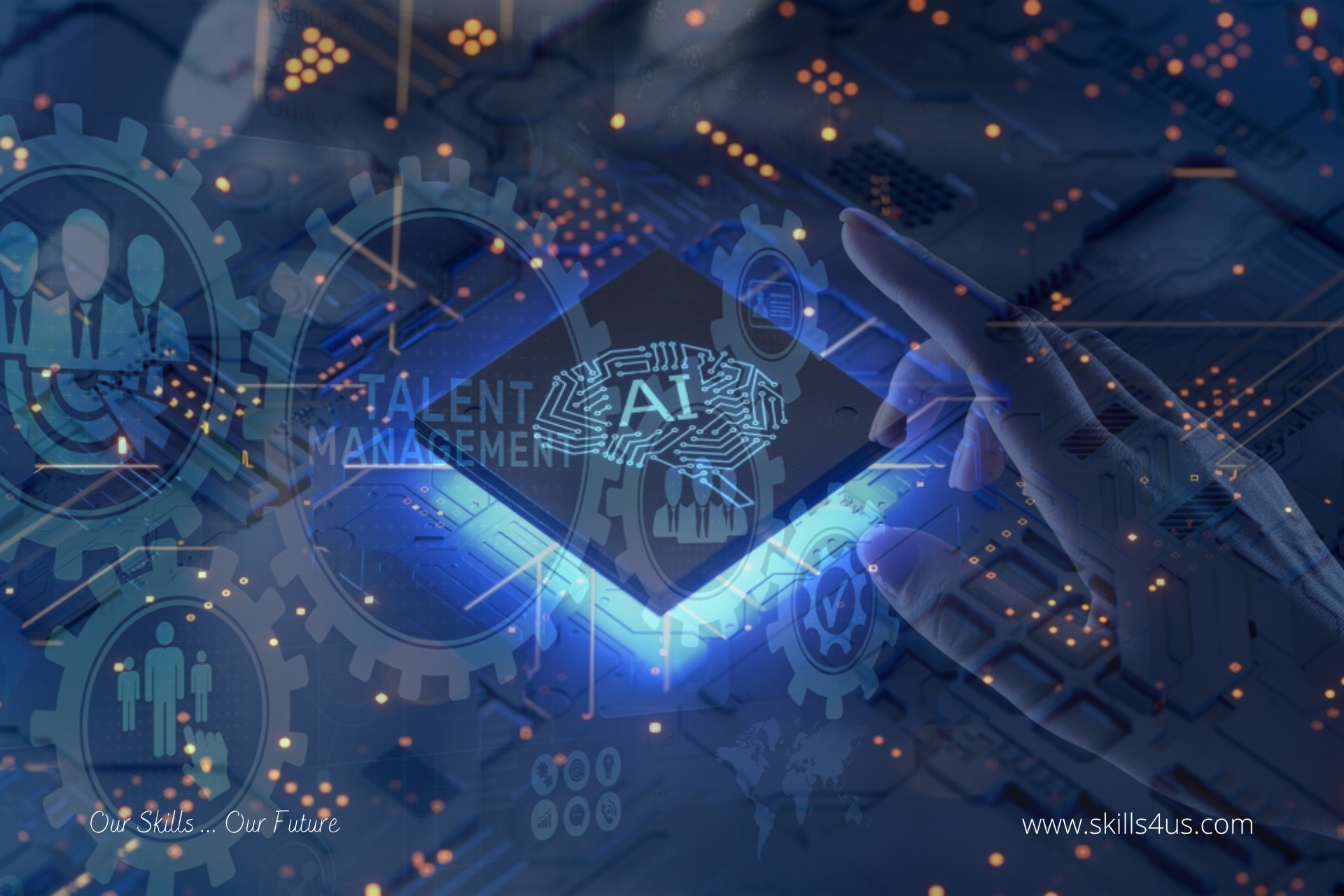Today’s business environment is witnessing a significant shift in work methods and technologies, which prompts organizations to intensify their efforts to have a highly skilled and adaptable workforce. In addition, it prompted them to adopt intelligent technology techniques in their operations, as AI makes talent management practices more effective. However, employee development and upskilling can be challenging, particularly in rapidly evolving industries or where employees constantly need to learn new skills. This is where AI can play a significant role in changing the business landscape by helping organizations create a more adaptable workforce through talent management practices.
How is artificial intelligence (AI) improving talent management practices?
1. Customized learning and development programs
Organizations can use AI language models to create personalized employee learning and development programs by analyzing learning patterns, performance data, and career aspirations. These programs meet the specific needs of each employee, providing them with the information and new skills they need to succeed in their job roles. Hence, this can help the employees stay updated with the latest technologies and best practices. It also allows them to learn at their own pace and in ways that suit them best. Moreover, customized learning and development programs can enhance employee engagement and improve learning outcomes by a significant percentage.
2. Automating specific tasks saves time and resources
AI can automate specific talent management tasks, such as checking resumes, scheduling interviews, and onboarding new employees. It can also automate specific tasks that save time for employees so they can focus on higher-level tasks that require human skills such as critical thinking, creativity, and emotional intelligence. Thus, automating specific tasks can save time and resources, enabling HR professionals and employees to focus on more strategic and value-adding tasks.
3. Enhancing innovation and decision-making capabilities
AI-powered chatbots can provide real-time guidance and information, freeing human resources for more complex tasks. Also, AI can help employees make better decisions by providing them with relevant information, insights, and analytics that will help them make informed decisions and raise their capabilities. In addition, it can facilitate virtual collaboration by identifying appropriate team members, connecting experts, and generating insights from large datasets, thus enhancing innovation and problem-solving capabilities.
4. Enhancing the quality of the selection process and avoiding bias
AI-powered talent acquisition systems can streamline recruitment processes and improve talent-hiring decisions. It can analyze large amounts of data with record speed and high efficiency. It also determines relevant qualifications and ranks applicants for suitability for specific job roles. Moreover, AI talent management systems have the potential to mitigate bias by focusing on the objective qualifications of candidates. Thus, recruitment processes that adopt AI technologies can reduce the time of the recruitment process, greatly enhance the quality of the selection process, and avoid the persistence of biases. Resulting in better, more diverse, and inclusive talent for organizations.
5. Enable performance management strategies
By analyzing data on key performance indicators, AI-powered performance management systems can provide real-time feedback and identify areas where employees need additional support or training. It also helps managers evaluate employee performance more accurately and objectively, providing more effective training and development opportunities for their teams. Thus, AI helps HR professionals monitor and analyze employee performance data, such as productivity, engagement, and turnover rates. It will also identify areas for improvement and enable more effective performance management strategies.
6. Effectively manage skills
AI helps business leaders manage skills effectively by identifying skill gaps within organizations’ workforces and providing targeted training and development opportunities to fill those gaps. By analyzing employee performance data, AI helps identify skill gaps, recommend personalized learning paths, and proactively suggest career development opportunities. Moreover, organizations that leverage AI for talent analytics experience higher productivity. It also helps employees stay competitive in a rapidly evolving job market and ensures the organization has the skills it needs to achieve its goals.
As technology advances, we can expect more exciting developments in the world of work. Therefore, AI makes talent management practices more effective, as organizations can develop the skills of their employees and can also create a more engaged and productive workforce.
